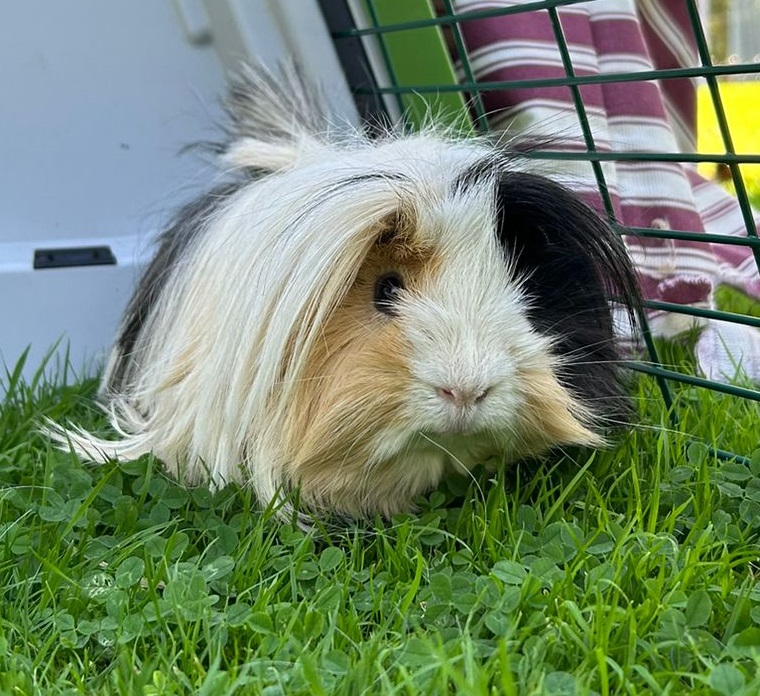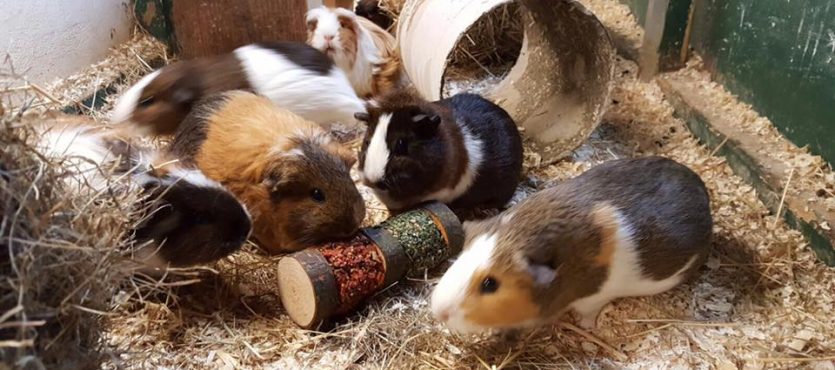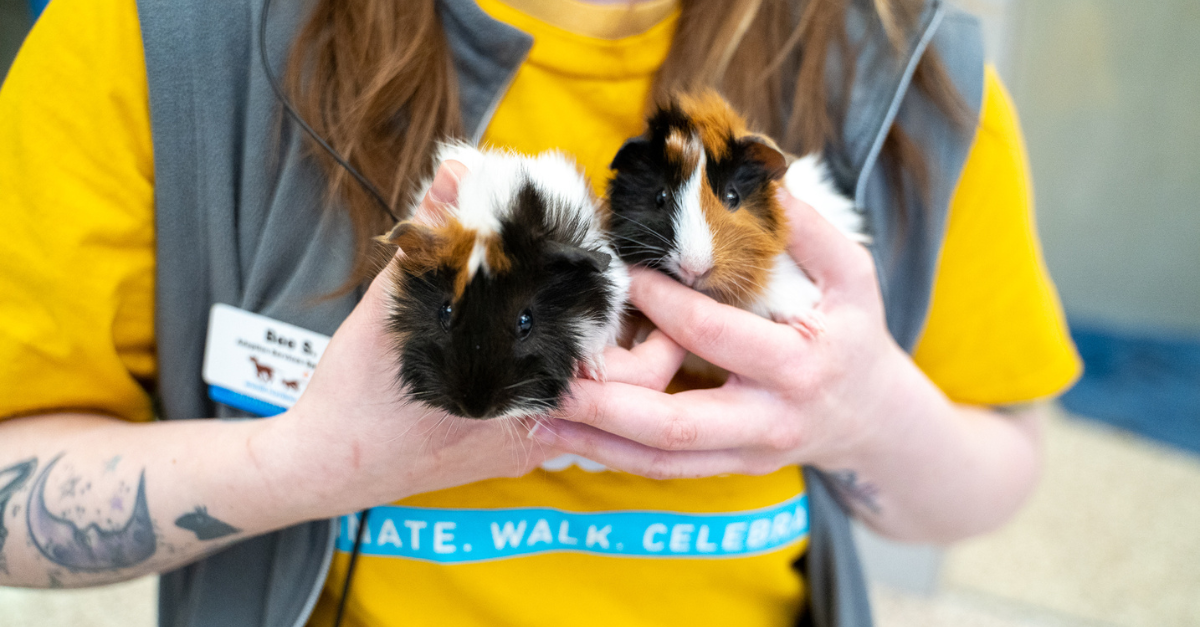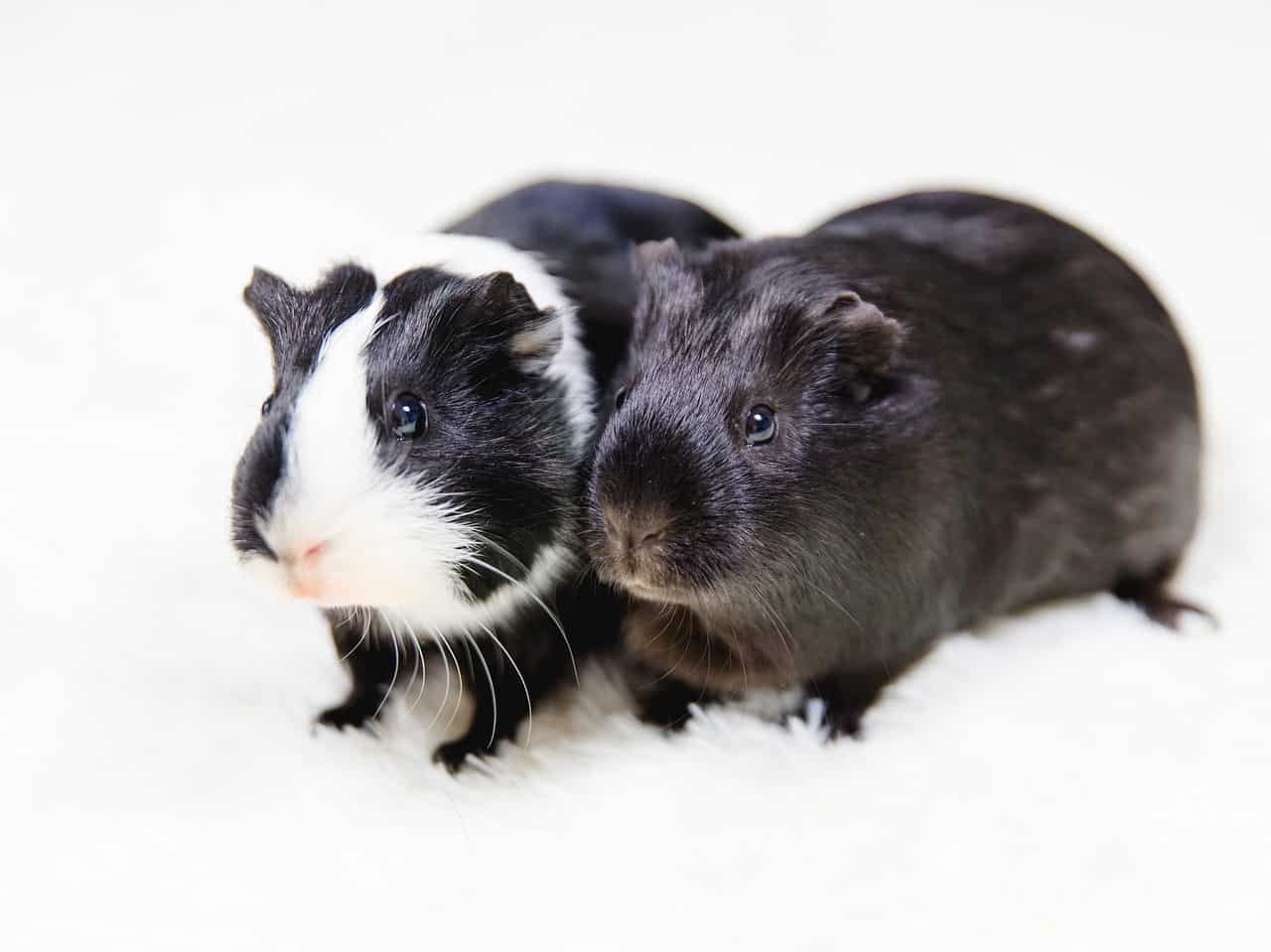Guinea pigs, also known as cavies, are adorable and sociable creatures that have become increasingly popular as pets. Their cute faces and playful personalities have captured the hearts of many, but before you bring one home, it’s essential to understand whether they are the right fit for your lifestyle and living situation. In this comprehensive guide, we will delve into the world of guinea pigs, exploring their unique needs, personalities, and potential challenges. By the end, you’ll have a clear understanding of whether a guinea pig is indeed a good pet for you.
>> READ MORE:
- Can Guinea Pigs Live Alone?
- The Wild Life of the Guinea Pig Beyond the Cage
- Popular Guinea Pig Breeds A Comprehensive Guide
- The Surprising Spectrum of Guinea Pig Size From Tiny to Tremendous
Contents
The Pros and Cons of Guinea Pig Ownership

Before we dive into the specific needs of guinea pigs, let’s first take a look at the pros and cons of owning one.
Pros:
- Adorable and Fun: Guinea pigs are incredibly cute and are known for their playful and curious nature.
- Social Creatures: These friendly rodents thrive with regular interaction and make great companions for children and adults alike.
- Low Maintenance: Compared to other pets, guinea pigs require minimal grooming and can be left alone for a few hours.
- Affordable: Guinea pigs are relatively inexpensive to purchase and maintain.
- Quiet: Unlike dogs or cats, guinea pigs are not noisy animals and won’t disturb your neighbors.
Cons:
- Requires Space: Guinea pigs need a spacious enclosure to live comfortably, which takes up more room than smaller pets like hamsters.
- Can Be Messy: They have a habit of knocking over food dishes and bedding, which can result in a messy living space.
- Frequent Cleaning: Their enclosures need to be cleaned regularly to prevent any unpleasant odors.
- Short Lifespan: Unfortunately, guinea pigs have relatively short lifespans compared to other pets, living an average of 5-7 years.
- Potential Health Issues: Guinea pigs are prone to certain health problems, which we will discuss in more detail later on.
Now that we have a general idea of the pros and cons of owning a guinea pig, let’s dive into their specific needs.
Understanding Guinea Pig Needs: Housing, Diet, and Exercise

Guinea pigs are social, intelligent creatures with specific requirements to live a healthy and happy life. In this section, we will break down these needs and provide tips on how to meet them.
Housing:
The first and most crucial aspect of guinea pig care is providing adequate housing. A suitable enclosure should provide enough space for your guinea pig to move around, exercise, and have a hiding place. Here are some things to consider when choosing a cage for your furry friend:
Space:
In the wild, guinea pigs inhabit grassy plains and are used to having plenty of room to roam around. As pets, they still need ample space to stay active and thrive. The minimum recommended enclosure size for one guinea pig is 7.5 square feet of floor space. However, larger is always better, so if you have the room, opt for a bigger cage. For two guinea pigs, the minimum recommended size is 10.5 square feet.
Cage Type:
When it comes to the type of cage, choose one with a solid bottom. Wire-bottom cages may seem like a good option because they allow for easy cleaning, but they can lead to foot problems for guinea pigs. Their tiny feet can get stuck in the wire, causing injury or even deformities over time. A solid bottom also allows for a more comfortable walking surface for your pet.
Accessories:
Along with a spacious cage, you’ll also need to provide accessories for your guinea pig to feel secure and stimulated. These include:
- Hideaway: Guinea pigs are prey animals, and as such, they need a safe place to retreat to when they feel threatened. A simple cardboard box with an opening cut out can make a great hideaway for your cavy.
- Food and Water Dish: Provide separate dishes for food and water to keep things clean and hygienic.
- Hay Rack: Guinea pigs need constant access to hay, which is essential for their digestion. A hay rack keeps it off the ground, preventing it from getting soiled or wet.
- Toys: Like any other pet, guinea pigs need mental stimulation. You can provide them with chew toys, tunnels, and even a mini obstacle course to keep them entertained.
Location:
Where you place the cage is also crucial for your guinea pig’s well-being. Here are some tips on finding the best spot in your home:
- Quiet: Guinea pigs have sensitive hearing, so it’s essential to keep their cage in a quiet area away from loud noises like TVs or stereos.
- Draft-Free: These rodents are susceptible to respiratory problems, so keep their cage away from drafts or direct air conditioning vents.
- Temperature: Guinea pigs prefer cooler temperatures, ideally between 65-75 degrees Fahrenheit.
- Lighting: While they do need some light during the day, avoid placing their cage in direct sunlight as it can cause overheating. Also, try to provide a consistent amount of daylight and darkness to mimic their natural habitat.
Diet:
A balanced diet is crucial for a guinea pig’s overall health and well-being. Their diet should consist of three main components: hay, pellets, and fresh vegetables and herbs.
Hay:
Hay is the foundation of a guinea pig’s diet and should be available at all times. Timothy hay is the best option as it is high in fiber, low in calcium, and promotes good dental health. It is also essential for their digestive system and helps prevent hairballs.
Pellets:
High-quality guinea pig pellets should make up a small portion of their diet. These pellets are specially formulated with the necessary nutrients for your pet’s well-being. Avoid mixes that contain dried fruits or seeds, as these can cause digestive issues. You can find recommended brands at your local pet store or consult with your veterinarian for specific recommendations.
Fresh Vegetables and Herbs:
In addition to hay and pellets, fresh vegetables and herbs should be offered daily. These provide essential vitamins and minerals that your guinea pig needs to thrive. Some safe options include:
- Leafy greens: Romaine lettuce, spinach, kale, and parsley are excellent choices.
- Vitamin C-rich veggies: Bell peppers, broccoli, and carrots are all great sources of Vitamin C, which is essential for guinea pigs since they cannot produce it on their own.
- Herbs: Dill, cilantro, basil, and mint are some examples of herbs that can add variety to your cavy’s diet.
It’s crucial to introduce new foods slowly, as sudden dietary changes can upset their stomachs. Additionally, avoid feeding them foods that are toxic to guinea pigs, such as chocolate, avocado, and onions.
Exercise:
Guinea pigs are active animals and need opportunities to move around and exercise daily. Here are some tips to ensure your pet gets enough physical activity:
- Playtime: Let your guinea pig out of their cage for at least one hour each day to explore and play. Be sure to supervise them during this time to ensure their safety.
- Toys: As mentioned earlier, providing toys and tunnels in the enclosure can also help keep your guinea pig active and engaged.
- Obstacle Course: If you have space, you can create a small obstacle course using cardboard boxes, ramps, and tunnels for your guinea pig to navigate.
Socialization and Handling: Building a Bond with Your Guinea Pig

One of the main reasons guinea pigs make great pets is their friendly and sociable nature. However, like any other pet, it’s essential to build a bond with your cavy to create a strong and trusting relationship. Here are some tips for socializing and handling your guinea pig:
- Start Slow: If you have just brought home a new guinea pig, give them a few days to adjust to their new surroundings before trying to handle them.
- Spend Time with Them Daily: Interact with your guinea pig every day to build trust and get them used to your presence.
- Use Food as Positive Reinforcement: Offer your guinea pig treats when they come to you or allow you to pick them up. This will help associate you with positive experiences.
- Be Gentle and Calm: When handling your guinea pig, be gentle and move slowly. Loud noises or sudden movements can startle them.
- Avoid Grabbing Around the Belly: Unlike rabbits, guinea pigs do not like being picked up from underneath. Instead, scoop them up from under their chest and support their hindquarters with your other hand.
- Respect Their Boundaries: Not all guinea pigs enjoy being held or cuddled, so it’s crucial to respect their boundaries. If your pet seems uncomfortable, put them back in their cage and try again later.
Building a strong bond with your guinea pig takes time and patience, but it’s worth it for the rewarding relationship that you will have with your pet.
Health and Lifespan: What to Expect from a Guinea Pig

As with any animal, guinea pigs are susceptible to certain health issues. Being aware of potential problems and knowing how to prevent or treat them is essential for keeping your cavy healthy.
Potential Health Issues:
- Respiratory Problems: Guinea pigs are prone to respiratory issues, such as pneumonia, which can be caused by drafts, stress, or bacterial infections.
- Dental Problems: Their teeth continuously grow, so it’s crucial to provide them with plenty of hay to keep their teeth worn down. Otherwise, they can develop overgrown teeth, which can cause pain and difficulty eating.
- Parasites: Lice, mites, and fungal infections are common in guinea pigs and can cause skin irritation and hair loss.
- Urinary Tract Infections (UTIs): UTIs are common in female guinea pigs and can be caused by a variety of factors, including a high-calcium diet and poor hygiene.
- Vitamin C Deficiency: Guinea pigs cannot produce Vitamin C on their own, so a lack of this essential nutrient can result in health problems like scurvy.
If you notice any changes in your guinea pig’s behavior or appearance, it’s crucial to take them to a veterinarian for a check-up. Regular vet visits are also essential for the overall health and well-being of your pet.
Lifespan:
The average lifespan of a guinea pig is 5-7 years, although some may live up to 8 years. While this may seem short when compared to other pets, it’s still a significant commitment, and you should be prepared for the long-term care of your cavy.
Finding a Guinea Pig: Adoption vs. Purchase

Now that you have a better understanding of guinea pig needs and what to expect from owning one, you may be wondering where to find your new furry companion. Here are two options to consider:
Adoption:
Many rescue organizations and shelters have guinea pigs available for adoption. Adopting a guinea pig is a great way to give a home to a pet in need and also helps reduce the number of animals in shelters. Additionally, many rescue organizations will have already spayed or neutered your guinea pig and may even provide a health check-up before adoption.
Purchase:
If you choose to purchase a guinea pig, make sure to buy from a reputable breeder or pet store. Look for signs of good health, such as bright eyes, clean fur, and alert behavior. Also, ask the breeder or store owner about the guinea pig’s history and any potential health issues.
Regardless of where you get your guinea pig, it’s essential to do your research and ensure that they are coming from a healthy environment.
Conclusion
Guinea pigs can make wonderful pets with their playful personalities and social nature. However, they also come with specific needs and potential challenges that need to be taken into consideration before bringing one home. By understanding their needs for housing, diet, exercise, socialization, and health care, you can determine whether a guinea pig is the right pet for you. Remember, proper care and love will result in a happy and healthy relationship between you and your furry companion.
